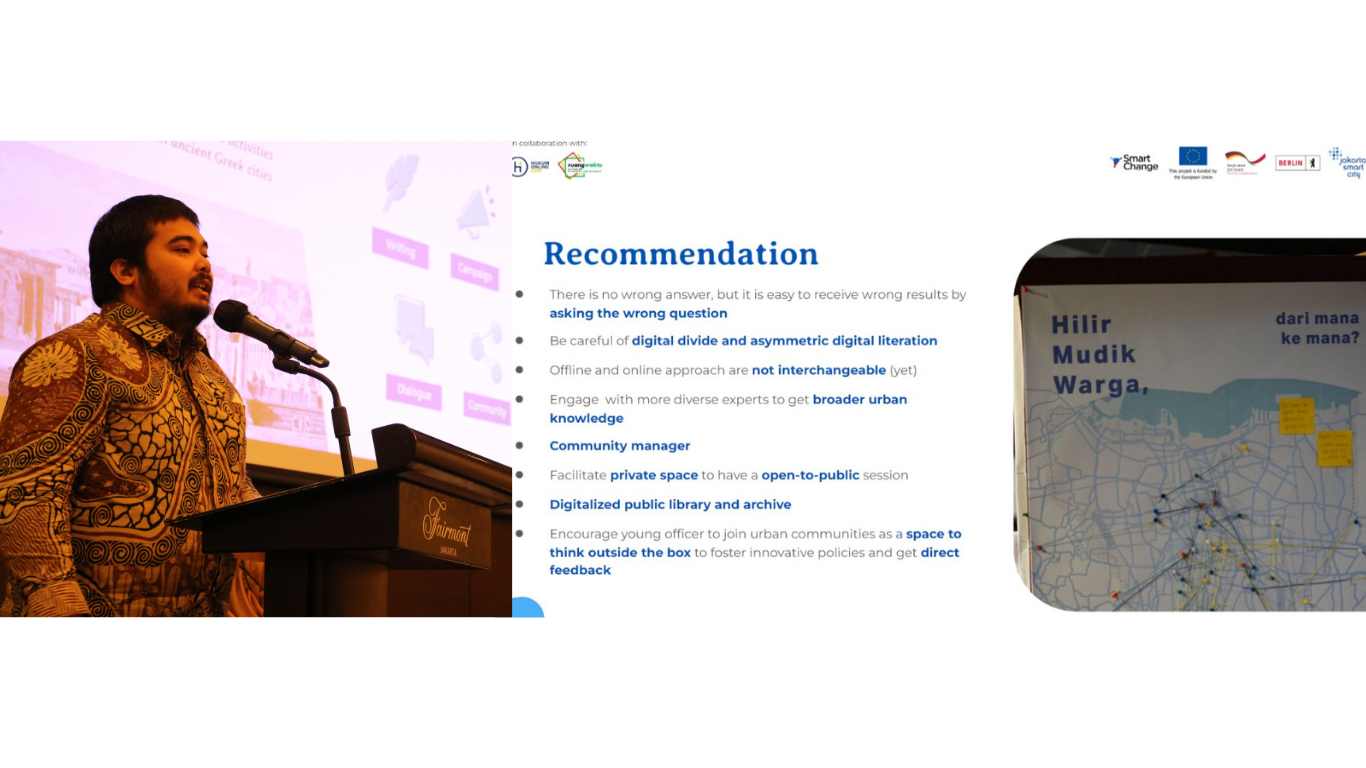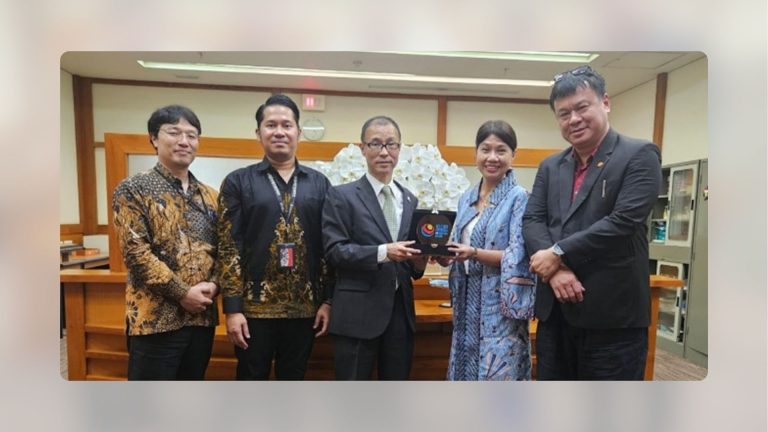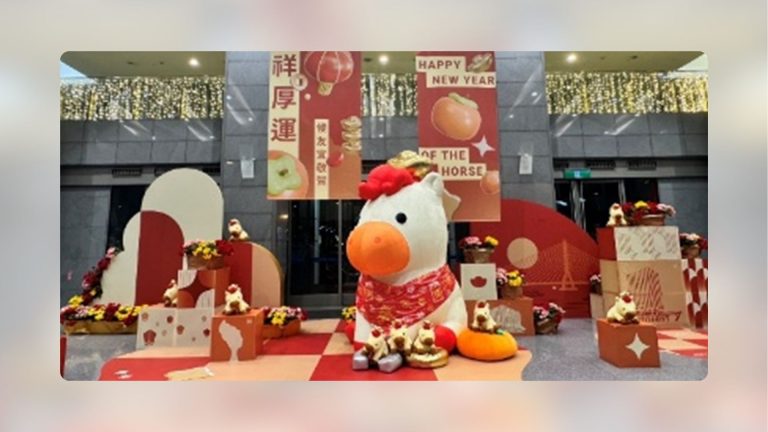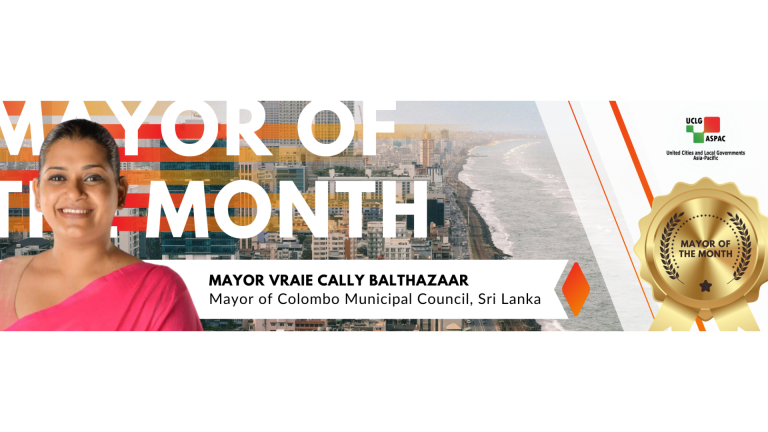It is great to build sustainable infrastructure in our cities. However, it is sometimes important to take a step back and consider urban development as a whole. Wouldn’t it be better to consult with the people who live there when designing a city suitable for the present and the future? At the U20 Mayors Summit Side Event, UCLG ASPAC and the Smart Change Jakarta project learned from Mr. Alvaryan Maulana, Research Coordinator of , about the lessons learned in participation processes in Indonesia’s urban development.
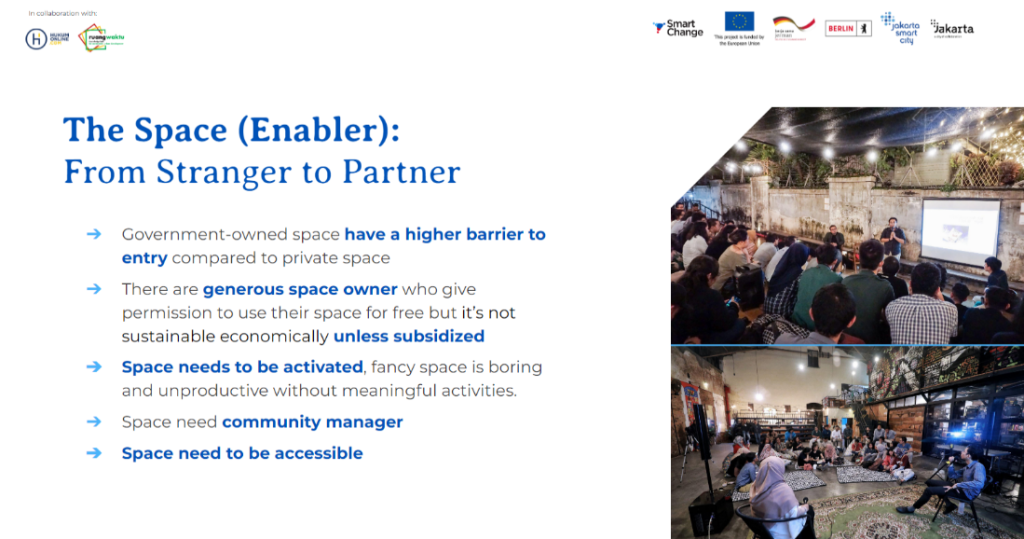
First of all, Kolektif Agora is an Indonesian independent community media organisation that aspires to be a collective literacy space for exploring urban narratives. Kolektif Agora learned several lessons from their 5-year-long . Mr. Maulana discussed the lessons he learned from five different perspectives; audience, space, expert, community, and citizen. Each perspective offers interesting insights that we, as the local governments and local governments association can consider in order to improve future execution.
- The Audience
From the audience’s perspective, Kolektif Agora’s experiences discovered that some people prefer informal dialogue following the event. These people may need to clarify unclear conclusions from the discussion, ask additional questions or provide their opinion, wish to make new friends and networks, or even simply because they need to talk about their daily urban lives.
- The Space (Enabler)
We sometimes take advantage of open spaces, which are actually enablers of open dialogue between communities and local government representatives. When deciding where to hold a discussion, there are a few things to consider. Despite categorised as a public good, government-owned space typically has a higher barrier to entry than private space. In contrast, discussion spaces have to be accessible.
There are generous space owners who offer their space for free. However, unless it is subsidised, it is not economically sustainable. In addition, some space ownersneed to activate the space because a fancy space devoid of meaningful activities are boring and ineffective.
- The Expert
The source person in discussions is also an essential element. They do not have to be well-known or work on a trending topic. As long as they have relevant knowledge and experience, we, as organisers, can give them time and opportunities to share their wisdom and disseminate their ideas to a larger audience.
- The Community
These are the common sacredness of community: fate, purpose, or choice. In fact, humans are capable of adhering to more than one fate, purpose, or choice; an individual can be unattached to a single community. They can be members of several communities at the same time. As a result, a community does not need to be formal and rigid.
Another consideration is that a community does not represent the entire population. Therefore, having conversations with people from different communities can help us broaden our knowledge.
- The Citizen
Occasionally, people want to talk about their city and their daily lives. Because social media no longer provides a safe space for such discussion, they demand a safe space to ask critical questions and share and clarify their thoughts and opinions. Meanwhile, another common interaction channel for citizens such as existing government portal, is limited to protesting, whereas most citizens simply just want to talk or ask questions.
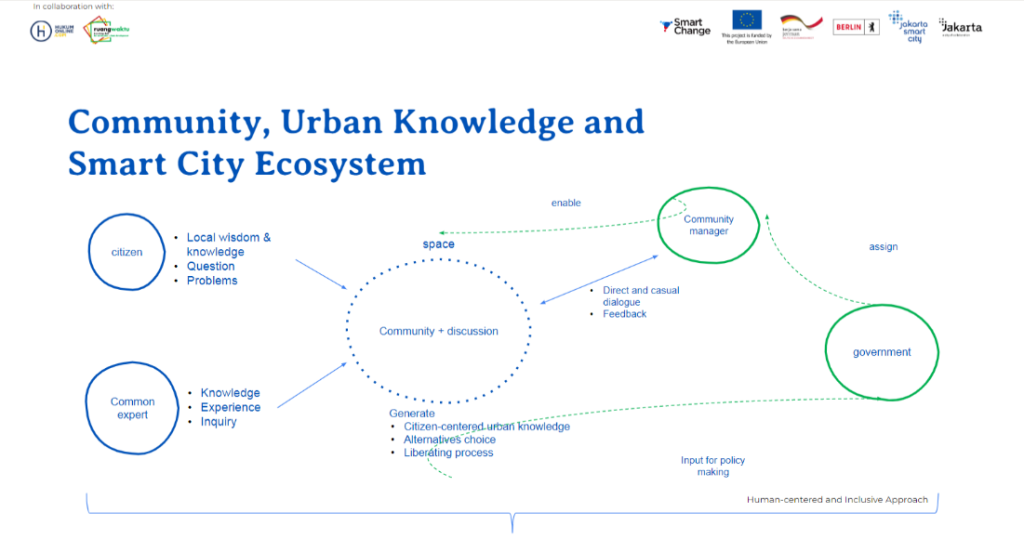
Mr. Maulana concludes the session by proposing the following recommendations for local governments when hosting a discussion with citizens:
- There is no such thing as a wrong answer, but it is easy to get the wrong answer by asking the wrong question.
- Watch out for digital divides and asymmetric digital literacy.
- The offline and online approaches are not interchangeable (yet)
- Collaborate with more diverse experts to gain a more comprehensive understanding of urban issues.
- Designate someone to be the community manager.
- Provide private space for an open-to-the-public session.
- Public library and archive digitisation
Encourage young officers to join urban communities as a place for them to think outside the box to foster innovative policies and receive direct feedback.








